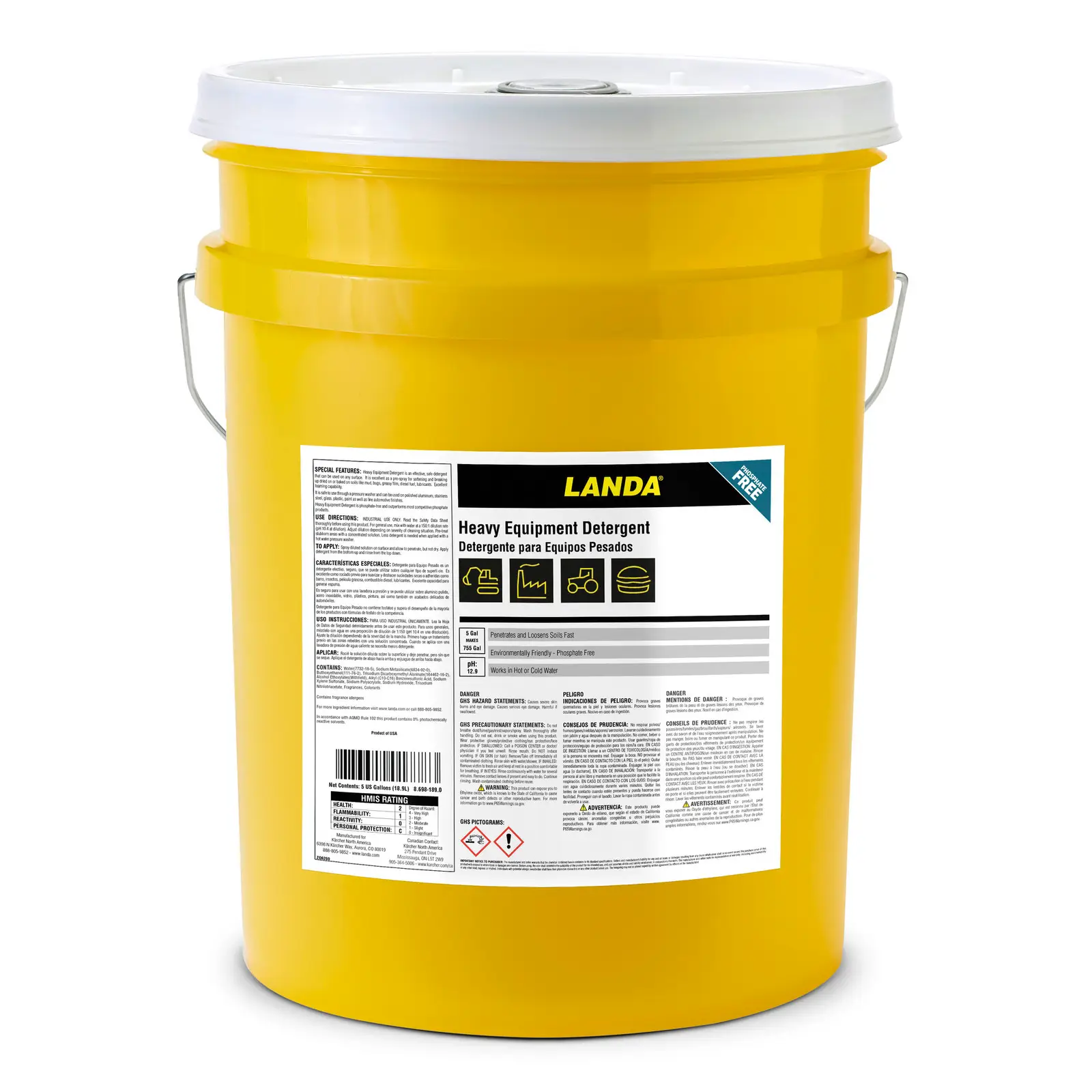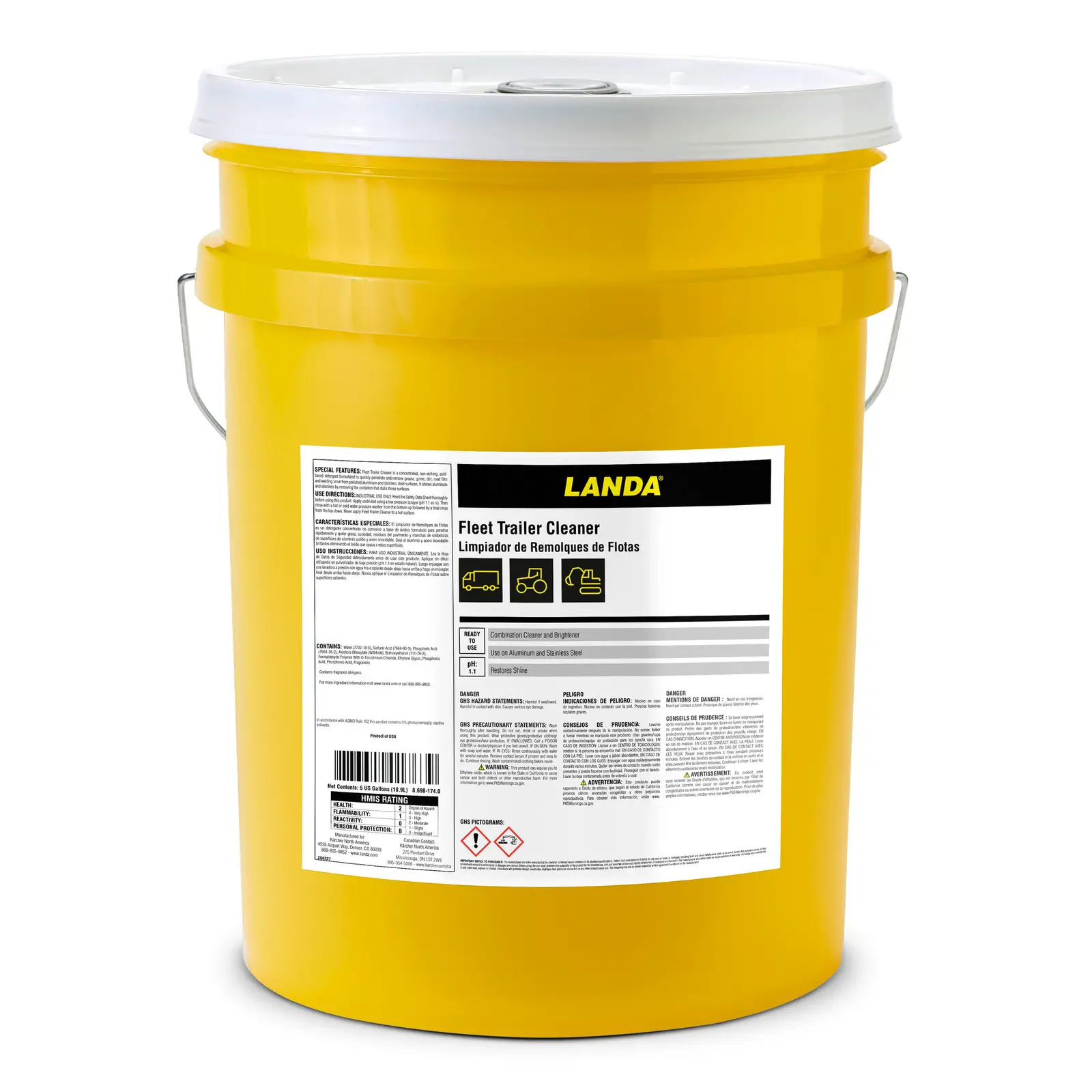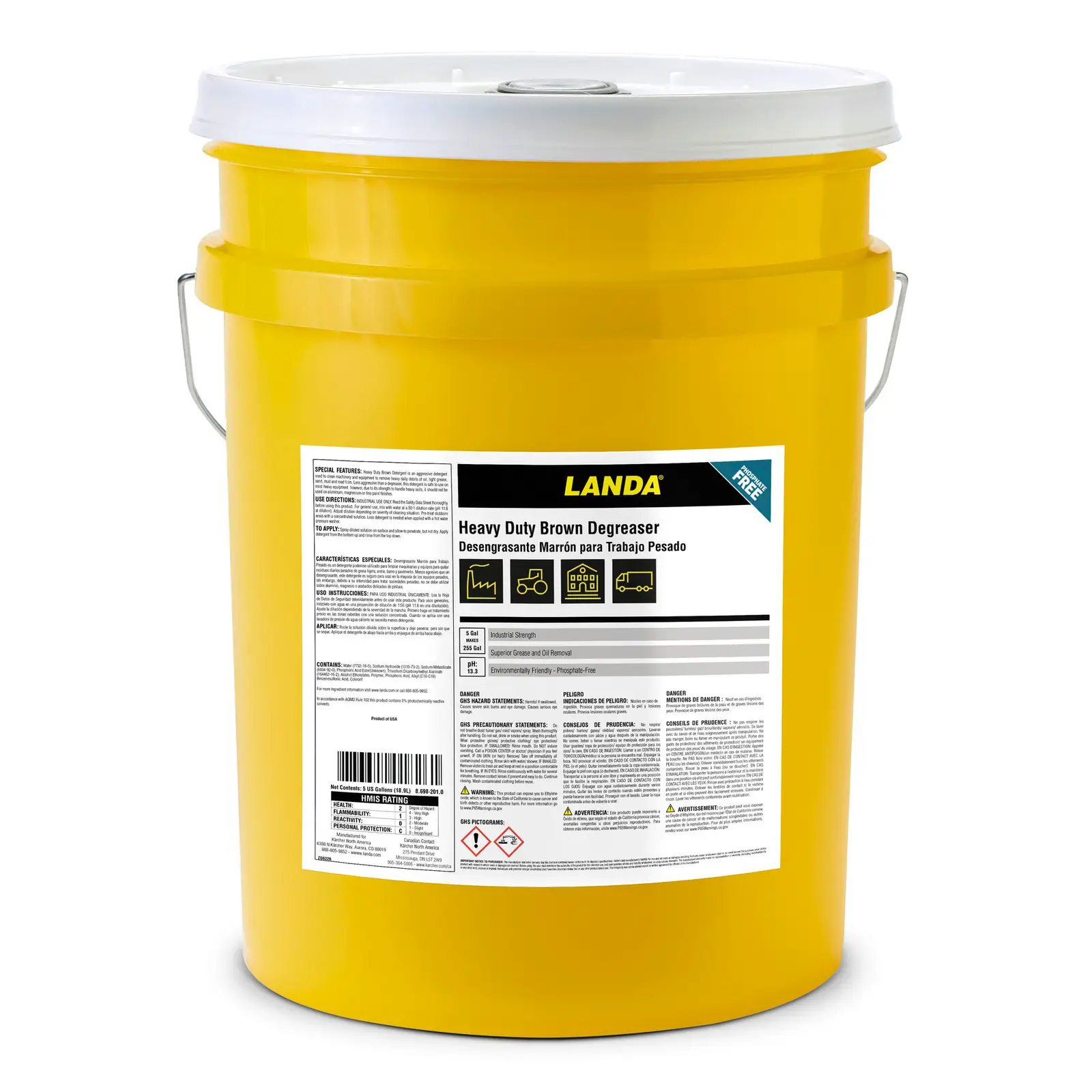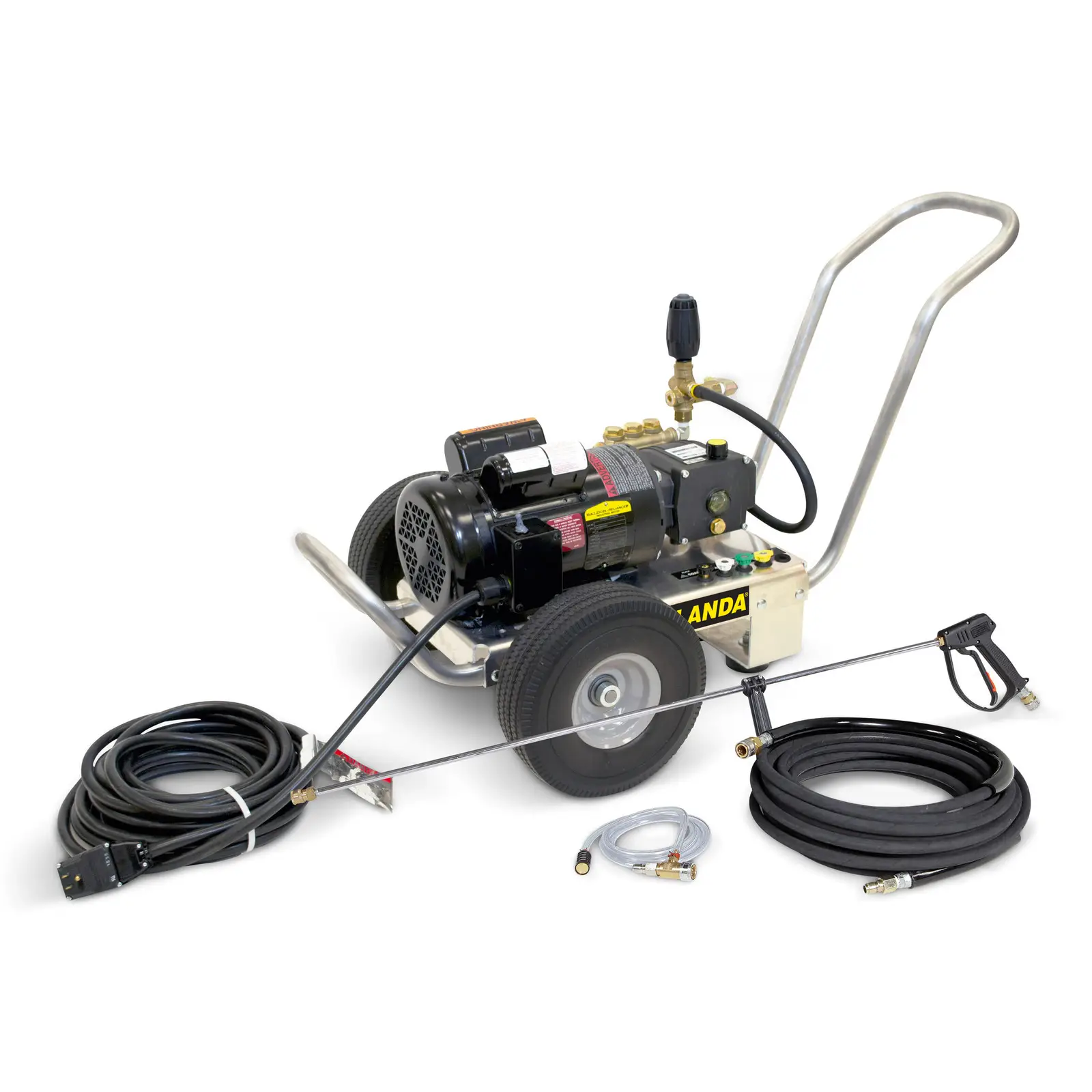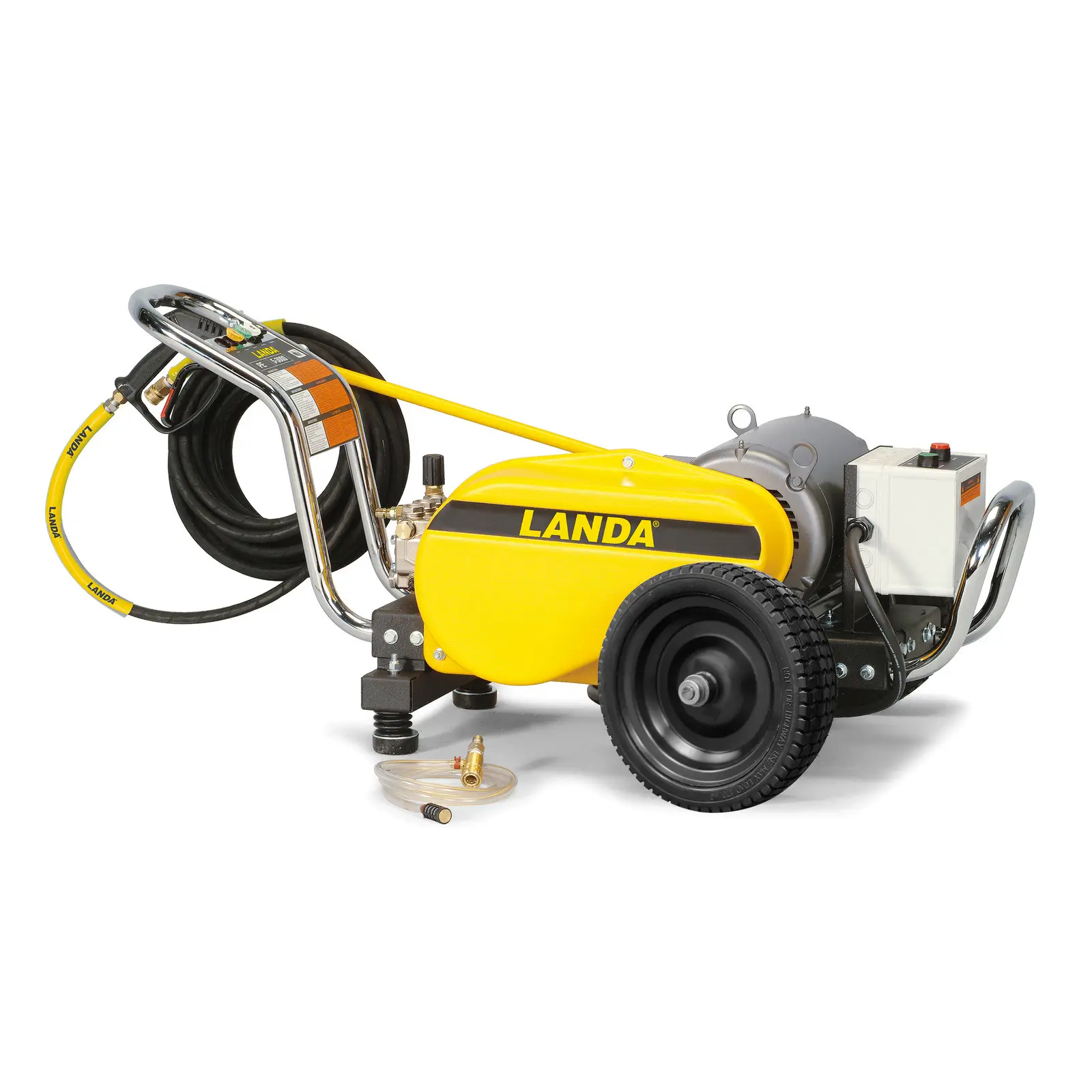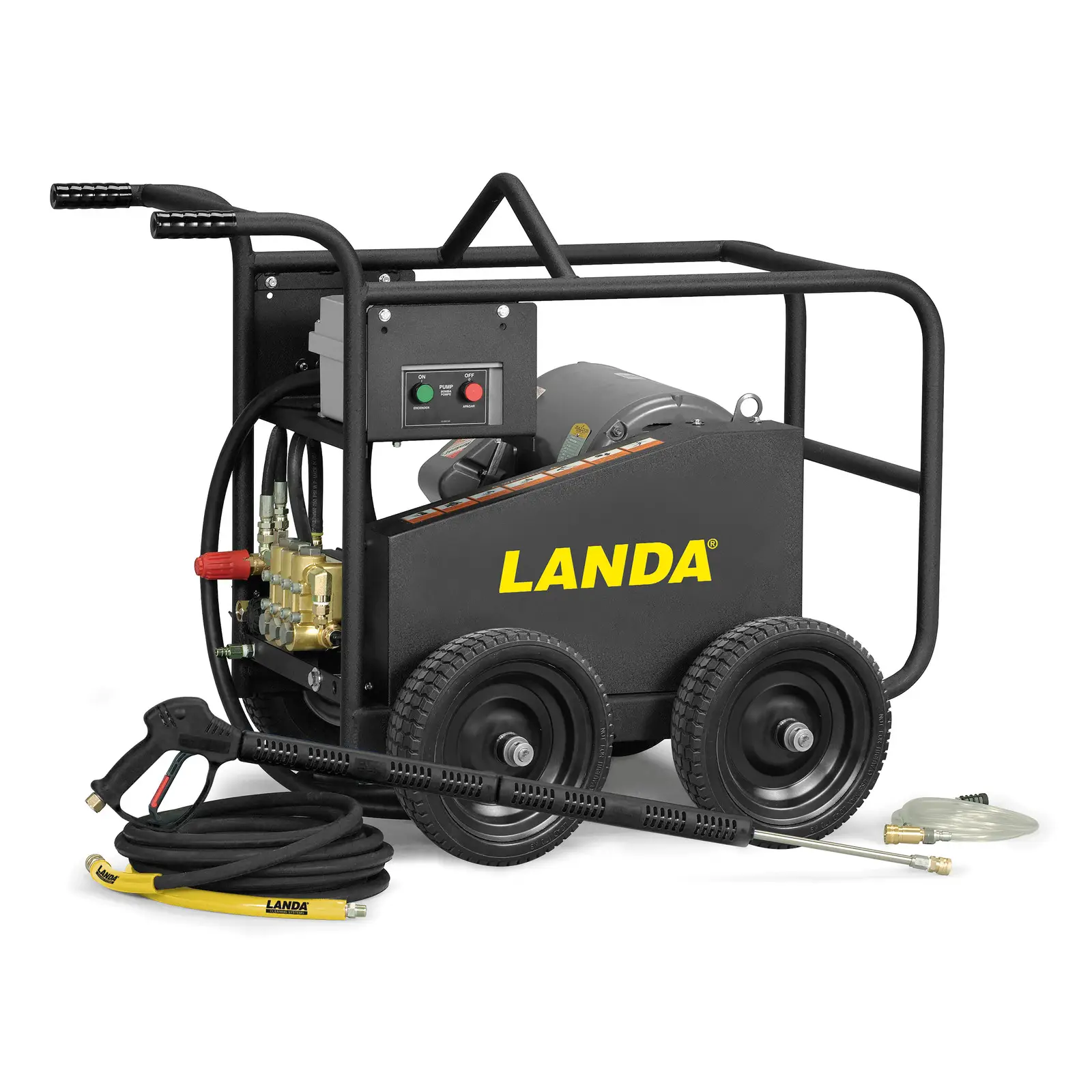Table of Contents
- 0.1 Introduction
- 0.2 The Importance of Cleanliness in Agriculture
- 0.3 Rational Decision-Making in Product Selection
- 0.4 A Brief History of Agricultural Cleaning Practices
- 0.5 Our Top Recommended Products for Agriculture Cleaning
- 1 Comparison of Eco-Friendly Detergents
- 1.1 Heavy Equipment Detergent
- 1.2 Fleet Trailer Cleaner
- 1.3 Heavy Duty Brown Degreaser
- 1.4 Enhancing Farm Cleanliness with Eco-Friendly Pressure Washers
- 1.5 The Role of Pressure Washers in Sustainable Agriculture
- 1.6 Benefits of Pressure Washing in Animal Health and Crop Safety
- 1.7 Cost-Effectiveness of Pressure Washers in Farm Operations
- 1.8 Choosing the Right Pressure Washer for Your Agricultural Needs
- 2 Comparison of Eco-Friendly Pressure Washers
- 3 You have questions.
- 4 We have answers.
- 4.1 Are eco-friendly cleaners as effective as traditional cleaners?
- 4.2 How often should farm equipment be cleaned?
- 4.3 Can these cleaning products be used around animals?
- 4.4 What should I consider when choosing a cleaning product for different areas on the farm?
- 4.5 Are there special considerations for storing agricultural cleaning products?
Introduction
In the world of agriculture, using Agriculture & Farming Cleaning Solutions to maintain cleanliness transcends mere appearance—it is pivotal for the health and productivity of your farming operations. At CleanOntario, we deeply understand the specialized challenges faced by farmers each day. With a commitment to sustainability and effectiveness, we provide a suite of eco-friendly and robust cleaning solutions designed to keep your farming environment not only clean but also safe and highly productive. Our products are meticulously tailored to align with the rigors of modern agricultural practices, aiding you in achieving optimal results for both your crops and livestock.
The Importance of Cleanliness in Agriculture
Maintaining cleanliness in agriculture is fundamental to successful farm management. A well-kept farm minimizes the risks of disease in both crops and livestock, bolsters biosecurity measures, and maintains the high quality of produce that reaches the market. Regular cleaning and disinfection are crucial in preventing the buildup of harmful bacteria, pests, and viruses that could severely disrupt farm operations.
Rational Decision-Making in Product Selection
At CleanOntario, our approach to selecting cleaning solutions for agriculture is driven by a deep understanding of the needs of modern farmers. We prioritize products that are not only effective in maintaining hygiene and safety but are also sustainable, minimizing environmental impact. This decision-making process is grounded in the latest agricultural research and feedback from within the farming community, ensuring that our solutions are both innovative and practical.
A Brief History of Agricultural Cleaning Practices
The history of cleaning in agriculture is as old as farming itself, with early methods focusing mainly on the physical removal of dirt and debris to prevent disease and pest infestations. As agricultural practices evolved, so did the methods and products used for cleaning. In the 20th century, the introduction of chemical disinfectants marked a significant advancement, but it also brought challenges related to environmental impact and sustainability. Today, the focus has shifted towards more sustainable and less harmful methods of cleaning, reflecting broader environmental concerns and the health of both consumers and farmworkers. CleanOntario has been at the forefront of this shift, supplying products that effectively address current agricultural challenges while also being safe for the environment.
Our Top Recommended Products for Agriculture Cleaning
At CleanOntario, we offer a selection of top-tier cleaning products specifically designed for agricultural use. These products not only meet the high standards required for effectiveness and safety but also support sustainable farming practices. Each product in our lineup is the result of extensive research and innovation, tailored to enhance the cleanliness and productivity of your farm without compromising environmental integrity. Through our comprehensive approach and dedication to quality and sustainability, CleanOntario aims to assist farmers in making informed decisions about their cleaning practices, ultimately leading to safer, more productive, and environmentally responsible farming operations.
Comparison of Eco-Friendly Detergents
Here’s a point-form comparison of the three eco-friendly cleaning detergents
Heavy Equipment Detergent
- pH: 11.8
- Color: Dark Brown
- Scent: None
- Foaming: High
- Phosphate-Free: Yes
- Container Sizes Available: 5-gallon and 55-gallon containers
- Key Features: Safe to use on any surface, excellent as a pre-spray for softening and breaking up dried-on or baked-on soils like mud, bugs, greasy film, diesel fuel, and lubricants. Safe for use on polished aluminum, stainless steel, glass, plastic, and paint. Phosphate-free, offering an eco-friendlier choice.
- Best Used For: High soil environments needing strong degreasing capabilities.
Fleet Trailer Cleaner
- pH: 1.1
- Color: None
- Scent: Slight Lemon
- Foaming: Medium
- Phosphate-Free: Yes
- Container Sizes Available: 5-gallon and 55-gallon containers
- Key Features: Concentrated, non-etching, acid-based detergent that quickly penetrates and removes grease, grime, dirt, road film, and welding smut from polished aluminum and stainless steel surfaces. It also shines aluminum and stainless by removing oxidation.
- Best Used For: Cleaning and restoring polished metal surfaces including trailers and equipment exposed to road conditions.
Heavy Duty Brown Degreaser
- pH: 11.8
- Color: Dark Brown
- Scent: None
- Foaming: High
- Phosphate-Free: Yes
- Container Sizes Available: 5-gallon and 55-gallon containers
- Key Features: Designed for cleaning heavy machinery and equipment to remove daily debris of oil, light grease, sand, mud, and road film. This detergent is safe to use on most heavy equipment however, due to its strength to handle heavy soils, it should not be used on aluminum, magnesium or fine paint finishes.
- Best Used For: Heavy cleaning tasks where strong degreasing is necessary but with care on sensitive finishes
Enhancing Farm Cleanliness with Eco-Friendly Pressure Washers
Pressure washers have revolutionized cleanliness on farms, offering a powerful solution for maintaining high standards of hygiene with reduced effort and time. Eco-friendly pressure washers, specifically, are designed to use less water and energy while providing the same powerful cleaning action needed to remove stubborn dirt, grime, and biological contaminants from equipment and surfaces. By using these sustainable models, farms can significantly decrease their environmental footprint, conserve water, and reduce the use of harsh chemicals in their cleaning processes.
The Role of Pressure Washers in Sustainable Agriculture
In the agriculture industry, sustainability is key to both environmental stewardship and economic viability. Pressure washers play a crucial role in this by enabling farmers to efficiently clean equipment, barns, and other surfaces without the excessive use of water and harmful chemicals. This not only helps in conserving resources but also ensures that runoff containing potentially harmful substances does not contaminate the soil or water systems, thus protecting the ecosystem and supporting sustainable farming practices.
Benefits of Pressure Washing in Animal Health and Crop Safety
The health of livestock and the safety of crops hinge significantly on the cleanliness of the farm environment. Pressure washers provide a thorough cleaning option that can help prevent the spread of disease and pests. By effectively removing organic waste, mud, and other contaminants, these devices reduce the risk of disease in animals and minimize the occurrence of fungal and bacterial infections in crops. This level of hygiene is essential for producing high-quality agricultural products and reducing losses due to health issues in plants and animals.
Cost-Effectiveness of Pressure Washers in Farm Operations
Investing in a high-quality eco-friendly pressure washer can be economically beneficial for farmers. These devices reduce the amount of time and labor required to keep large areas and equipment clean, thereby allowing staff to focus on other critical tasks. Moreover, the reduced need for chemical cleaners not only saves money but also decreases the potential for costly environmental compliance issues. Over time, the efficiency and effectiveness of pressure washers can lead to significant savings and increased operational productivity.
Choosing the Right Pressure Washer for Your Agricultural Needs
Selecting the appropriate pressure washer for agricultural use involves considering several factors, including the size of the areas to be cleaned, the type of contaminants, and the frequency of cleaning required. For eco-friendly options, it’s important to look for pressure washers that offer adjustable pressure settings, water conservation features, and compatibility with biodegradable detergents. These features ensure that the cleaning process is as environmentally friendly as possible while still being effective. Farmers should also consider models that are durable and designed for the rigors of farm use to ensure a long-lasting, valuable tool for their cleaning arsenal.
Comparison of Eco-Friendly Pressure Washers
Here’s a point-form comparison of the three eco-friendly pressure washers
HD Electric Series
- Pressure (psi): 1000
- Flow Rate (gal/min): 2
- Power (Amps): 15
- Phase: 1
- Weight (lbs): 161.6
- Dimensions (L x W x H) in: 41.72 x 27.87 x 24.31
- Equipment Included: 50 ft tube length
- Features:
- Corrosion-resistant aluminum pressure washers that convert from a cart to a skid for maximum cleaning agility and durability.
- Offers a bypass loop for additional pump protection and a 7-year pump warranty.
- Low profile handle and compact footprint, easy to maneuver.
PE Series
- Pressure (psi): 1500
- Flow Rate (gal/min): 1.8
- Power (Amps): Data not specified
- Phase: Data not specified
- Weight (lbs): Data not specified
- Dimensions (L x W x H) in: Data not specified
- Equipment Included: 50 ft tube length
- Features:
- High-quality components for tackling tasks safely and easily.
- Tri-plunger pump with 7-year warranty, and industrial-duty Baldor motor, includes steel frame with welded seams.
- Stainless steel point and shoot wand for cleaning effectiveness.
MPE Series
- Pressure (psi): 5000
- Flow Rate (gal/min): 5
- Power (Amps): Data not specified
- Phase: Data not specified
- Weight (lbs): Data not specified
- Dimensions (L x W x H) in: Data not specified
- Equipment Included: 50 ft tube length
- Features:
- Offers high impact cleaning with up to 5000 PSI, more than enough for removing tough dirt and grime.
- Comes with a roll cage, lifting bar, and flat-free tires for easy maneuverability in any terrain.
- Includes shock absorbing, spring-loaded rubber feet to keep the washer stable during operation.
Creating an Effective Cleaning Protocol for Your Farm
Maintaining high standards of hygiene on your farm is essential for the health of your livestock and crops. Implementing a well-defined cleaning protocol can significantly reduce the risk of disease spread. Here are detailed steps to help you establish an effective cleaning protocol for your farm:
1. Assess Your Cleaning Needs
Start by evaluating all areas of your farm to identify key locations that require regular maintenance and those that may need less frequent, but more intensive, deep cleaning. This includes livestock areas, storage rooms, equipment sheds, and any processing areas. Understanding the specific cleaning needs of each area ensures that no part of your farm is overlooked.
2. Select Appropriate Cleaning Products
Choosing the right cleaning solutions is critical for effective sanitation. Opt for products that are not only effective against dirt and pathogens but also safe for use around animals and plants. Consider eco-friendly options that minimize environmental impact. For each area, use a cleaner suitable for the type of soil and surface to be cleaned to ensure optimal results.
3. Establish a Cleaning Schedule
A structured cleaning schedule is vital. Outline tasks that need to be performed daily, such as sweeping and disposing of waste, along with weekly and monthly tasks like washing down walls and deep cleaning equipment. This schedule should be prominently displayed and easily accessible to all farm staff.
4. Train Your Staff
Proper training in cleaning procedures and the correct use of cleaning products is essential for your team. Ensure that every team member understands their role in maintaining cleanliness and the specific techniques to use in different areas of the farm. Regular training sessions can help reinforce best practices and introduce new methods or products.
5. Monitor and Adjust Your Protocol
Regular evaluation of your cleaning protocol is necessary to ensure its effectiveness. Monitor the outcomes and gather feedback from your staff. If certain areas are not meeting hygiene standards, or if new types of contamination occur, adjust your protocol accordingly. This iterative process helps in maintaining a consistently high standard of farm hygiene.
Tips for Maintaining Hygiene on Farms
Maintaining hygiene on a farm is crucial to prevent the spread of disease and ensure the health of both livestock and crops. Here are expanded tips to help you effectively manage farm hygiene:
Wear Protective Gear
It is vital to use appropriate protective clothing and equipment when handling cleaning chemicals or managing waste. Protective gear might include gloves, masks, aprons, and goggles, which protect against skin contact with harsh detergents, prevent inhalation of fumes, and avoid direct exposure to organic waste and pathogens. This not only protects farm workers from potential health risks but also prevents the transfer of contaminants from one area of the farm to another.
Use Color-Coded Tools
Implementing a color-coded system for cleaning tools can significantly reduce the risk of cross-contamination. Each area of the farm should have its own set of tools, such as brooms, mops, and buckets, designated by different colors. For instance, one might use red tools for livestock areas and green tools for vegetable processing zones. This method helps ensure that contaminants from one area do not inadvertently transfer to another, maintaining distinct hygiene standards across various farm sections.
Maintain Cleaning Equipment
Regular inspections and maintenance of cleaning equipment are essential to ensure they function effectively and safely. This involves checking the condition of brushes, mops, hoses, and mechanical cleaners for signs of wear or damage. Worn-out items should be replaced immediately to maintain cleaning efficiency. Additionally, it’s important to clean and disinfect the equipment itself after use to prevent it from becoming a source of contamination.
Implement Routine Cleaning Checks
To maintain consistent hygiene standards, it is beneficial to implement routine checks of cleaning practices across the farm. This could involve regular audits or inspections to ensure that cleaning protocols are being followed correctly. Feedback from these checks can help identify areas for improvement and update training or procedures as needed.
Educate and Train Staff Regularly
Continuous education and training for farm staff on the importance of hygiene and proper cleaning practices are crucial. Regular training sessions can help keep everyone updated on the best practices and any new cleaning technologies or products. This ensures that all employees understand their role in maintaining hygiene on the farm and are competent in using various cleaning tools and chemicals safely.
- EPA’s Safer Choice Program – Offers a list of environmentally safer cleaning products approved by the U.S. Environmental Protection Agency. EPA Safer Choice Program
- Centers for Disease Control and Prevention (CDC) – Agricultural Health and Safety – Provides guidelines and resources on maintaining hygiene and safety in agricultural settings. CDC Agricultural Health and Safety
- National Sustainable Agriculture Information Service – Offers comprehensive resources on sustainable farming practices, including eco-friendly cleaning methods. ATTRA – Sustainable Agriculture
- Farm Equipment Manufacturers Association – Provides insights and tips on maintaining and cleaning agricultural equipment effectively. Farm Equipment Manufacturers Association
- The Organic Farmer’s Business Handbook – A useful guide that includes tips on maintaining farm equipment and facilities using eco-friendly methods. The Organic Farmer’s Business Handbook
- American Society of Agricultural and Biological Engineers – Features standards and publications related to agricultural machinery and hygiene maintenance. ASABE Publications
- Biosecurity in Agriculture – University of Minnesota Extension – Provides detailed information on biosecurity practices essential for preventing disease in farms. University of Minnesota Extension – Biosecurity
FREQUENTLY ASKED QUESTIONS
You have questions.
We have answers.
If you can’t find the answer here
please give us a call us at
Are eco-friendly cleaners as effective as traditional cleaners?
Yes, our eco-friendly cleaners are meticulously formulated to match the cleaning power of traditional cleaners, while also prioritizing safety for the environment and your farm. They effectively remove dirt, grease, and pathogens without the harsh chemicals that can harm wildlife and plants.
How often should farm equipment be cleaned?
The frequency of cleaning farm equipment can vary based on the type of equipment and its usage. However, a good rule of thumb is to clean equipment after each use. This practice helps prevent the buildup of residues and contaminants that can reduce equipment efficiency and lifespan. For equipment used less frequently, a schedule based on seasonal or periodic usage assessments is recommended.
Can these cleaning products be used around animals?
Absolutely. Our products are specifically designed to be safe for use around livestock and pets. They are free from harmful chemicals that could pose health risks to animals, ensuring that your farming operations can continue safely and effectively.
What should I consider when choosing a cleaning product for different areas on the farm?
When selecting cleaning products, consider the specific needs of each area. For instance, products used in animal enclosures should be highly effective against pathogens but safe for animals, while those used for equipment or storage areas should be powerful against oil and grease. Always choose products suited to the surface material and the type of soil they need to address.
Are there special considerations for storing agricultural cleaning products?
Yes, proper storage of cleaning products is crucial to ensure their efficacy and safety. Store all chemicals in a cool, dry place away from direct sunlight and extreme temperatures. Ensure that all containers are securely sealed to prevent leaks and spills. It’s also important to keep these products out of reach of children and animals to avoid accidental ingestion.

